Would you like a career in the film industry? Or maybe in a field related to film? Perhaps you’ve found yourself wondering how to become a film editor. If this is the case, then you’ve come to the right place, as in this article we’re going to take a look at the film editor job role and provide a detailed guide for you on how to get into this career.

The job of a film editor is absolutely vital to the overall quality of the final version of the film. The editor will ensure that the story has been shaped the way that the screenwriter and director envisioned. As a result of this, the job of a film editor is highly valued.
So, make sure that you keep reading to discover how to get the job of your dreams!
What Is A Film Editor?
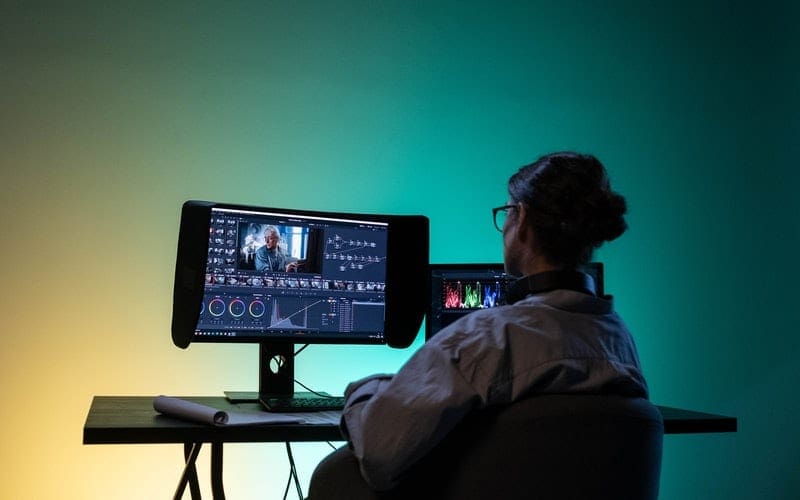
A film editor will be in charge of assembling the movie into one polished final product. This means that they will need to cut and place scenes together, ensuring that the final film makes sense and is easy to follow.
The editor will need to watch all of the footage that’s been compiled and choose what footage is suitable to use. A video editing software program will then be used to compile the footage into one big piece of work.
The editor puts together rushes (pictures) and cuts as they are delivered to them. Films aren’t typically shot in the correct order, so it’s important that the editor keeps track of everything.
The organising of the footage will sometimes be necessary, and this can be done through categorising scenes and different takes. The film editor can work closely with the director to ensure that their vision is successfully transferred over.
What Does A Film Editor Do?
So, what does a film editor do?
Here are the main duties of a film editor.
Pre-Production Responsibilities
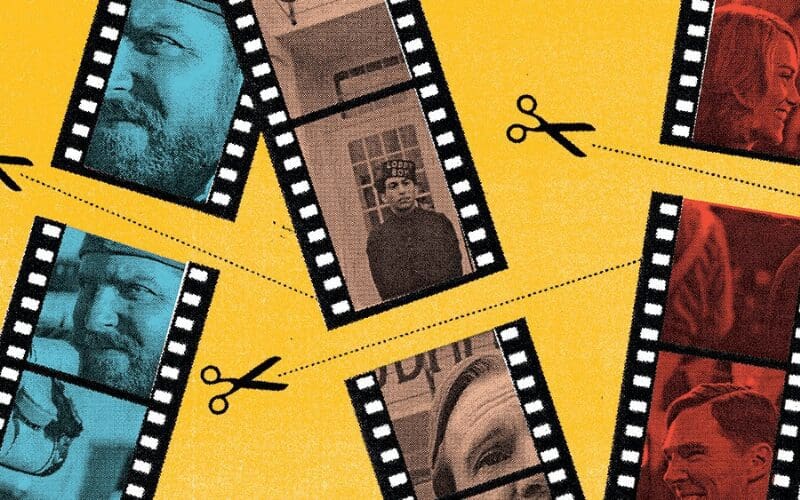
During the pre-production process, the film editor will still have duties to complete, no matter the fact that they have nothing to edit just yet!
During this time, they will work closely alongside the director of the film and decide how best to convey the script. This means that film editors will need to have good communication skills.
When the filming begins the film editor will need to be aware of what’s being shot and on what day.
They will examine rushes every day and check that the story is being progressed and ensure that the technical standards are being upheld. They will then start to edit it into a series of film scenes.
Once the filming has stopped the editor will already have spent a great deal of time working on scenes and cutting them to create a rough view of how everything is going to look.
Post-Production Responsibilities
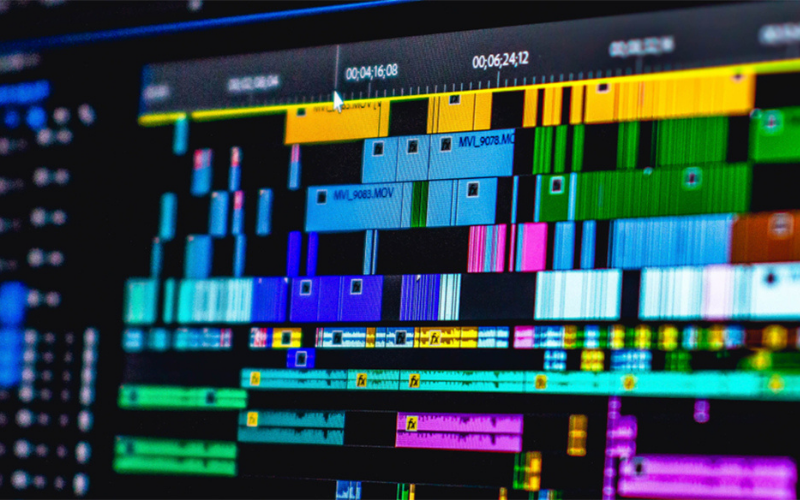
Post-production is just as busy as their duties during pre-production and during filming. It’s this time that the editor will work closely alongside the director again. They will sit together and examine what the editor has so far.
This will then be assembled into a director’s cut. This cut needs approval from the producers, and this will then be defined as the final cut.
Finally, sound effects and music will be added, and this is a process that editors will be involved with.
How To Become A Film Editor
So, how do you get film editor jobs? Well, before you can get ahead of yourself you will need to have a think about what route you wish to go down.
By this, we mean the education route or the do-it-yourself route. This could entail getting hired by a company as an intern and then working your way up the career ladder.
Of course, going to film school, or getting a relevant degree is a great way for you to garner a large amount of knowledge surrounding the film industry as a whole. There’s no right or wrong way to get the job of a film and video editor, just do what feels natural to you.
Film Editor Education Requirements

So, what are the film editor education requirements? You can decide to go down the education route to become a film editor. Some editing positions will require the individual to have a bachelor’s degree.
This doesn’t have to be a specific film editing degree, as a degree that’s related to the industry would also be acceptable.
This could include cinematography, film broadcasting, or communications degrees. Of course, there will also be many college courses that you can take that will involve practical and theory coursework.
An education route is a great option for people who wish to become film editors. This is because the degree will provide you with a great body of knowledge to draw from surrounding the film industry.
Also, it can give you an edge over the other people applying for the job, and it will also give you a talking point during an interview where you can draw on your relevant experience from your degree.
Also, editors will receive training weeks before they begin their new roles. Some training will involve taking specific courses related to different editing software that they use. It’s a good idea to familiarise yourself with the many different programs out there.
There are many different university options out there. If you’d like some options, then you’re in luck – here are some great examples for you!
University Of Kent
At the University of Kent, you can take the following courses:
Art History and Film – BA (Hons) at Canterbury
Film with a Year Abroad – BA (Hons) at Canterbury
Drama and Film – BA (Hons) at Canterbury
Film – BA (Hons) at Canterbury.
The Film Studies department is a leading institution of learning for this industry.
London Film Academy
The London Film Academy is also a great option for you. This institution is held in high esteem for its teaching and research. You can take courses like Filmmaking BA (Hons), Screenwriting Diploma, Screenwriting MA, and Filmmaking MA.
If you would prefer to not study at degree level, then there are also other short courses related to filmmaking and the industry.
University Of Winchester
Finally, at the University of Winchester, you can study BA (Hons) Film Production.
They note that this is a great degree choice for people who wish to become a film editor or producer.
You get to gain practical experience, in addition to learning from some knowledgeable people in the industry.
How To Become A Film Editor Without Qualifications
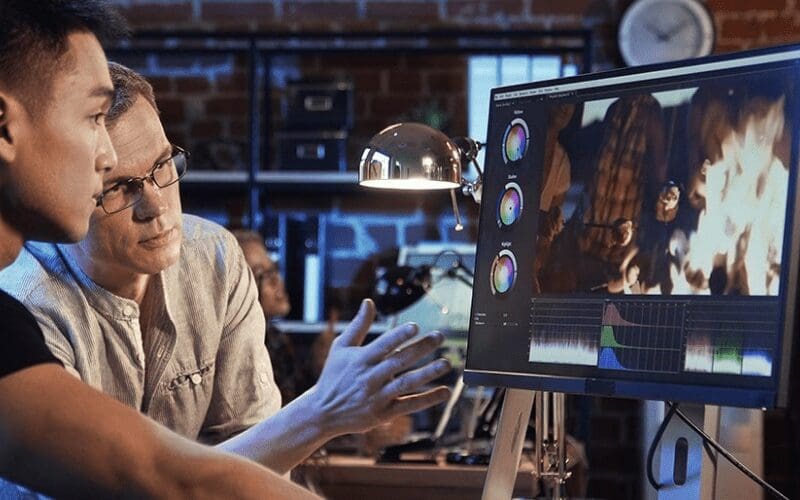
It’s important to note that you don’t need qualifications to begin your film editor career, as there are different routes that you can take.
An Internship
An internship is a great way to gain practical knowledge and experience by learning on the job. Some internships will be paid, while others will not.
You can observe the editor doing their job, and this will help you to retain the relevant editing techniques. It will also help you to get comfortable on a film set and working closely with the director.
This can ensure that your communication levels are up to scratch and that you can convey your ideas effectively. This could lead to an entry-level job, and this is a great way to get hired for your preferred role.
You see, you can work your way up through the ranks, and just getting your foot in the door can be the beginning of you working at your ideal job.
Build Your Portfolio
If you have edited some of your own short films, or maybe even worked on an independent film, then this will all contribute to your portfolio.
This is handy, as it gives you a body of work (however small) that can demonstrate to your future employer what you can do.
Learn The Basic Skills & Techniques
There’s nothing stopping you from taking the initiative and learning the basics of film editing yourself.
This could be by reading articles, watching tutorials on YouTube, or downloading editing programs and trying them out.
Where To Find Film Editor Jobs
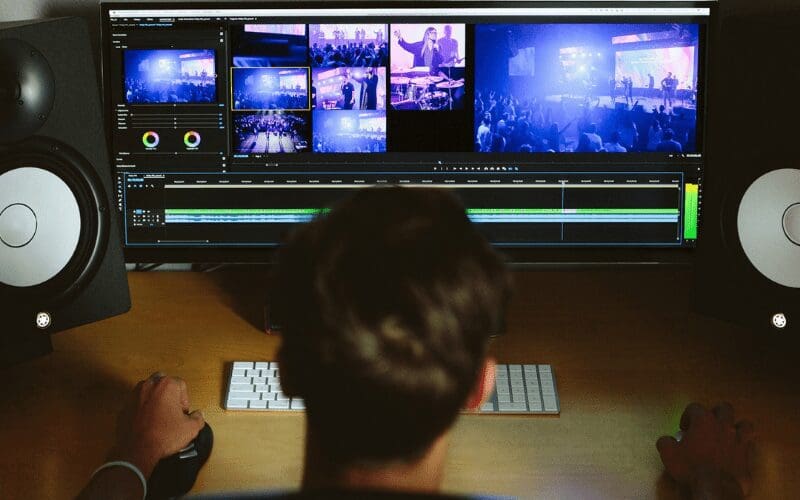
So, where can you find film editor jobs? These types of jobs are typically advertised on job websites, such as Indeed or Total Jobs. LinkedIn can also be a useful place to find jobs, and it’s also a great place to network with people in your industry.
Therefore, we highly recommend that you make accounts with all of the above-mentioned websites to give yourself the best chance of coming across a job that suits you and your skillset.
There’s also a handy website called the Video Collective. This is a site specifically for jobs in the film industry. You can type in your preferred location, job type, and more to help you find the perfect job for you.
Film Editor Salary

How much do film editors make? This is a commonly asked question among hopeful film editors; however, the film editor’s salary can vary depending on if you’re a freelancer or hired by a company.
The average annual salary in America for a film editor is $52,100. It can range from between $35,000 to $79,000. In the UK the average salary for a film editor is £30,375 per year.
All of these salaries can vary depending on the amount of relevant experience you have and if you have any qualifications.
You can discuss your salary expectations with your potential employer at your job interview. It’s also important to note that freelance editors will typically set their own day rate.
This will be based on their level of experience, and the sum must be agreed upon with your employer.
Your rate may also change depending on what project you’re working on. For example, a Hollywood movie will likely pay more than a short independent film.
Now You Know How To Become A Film Editor
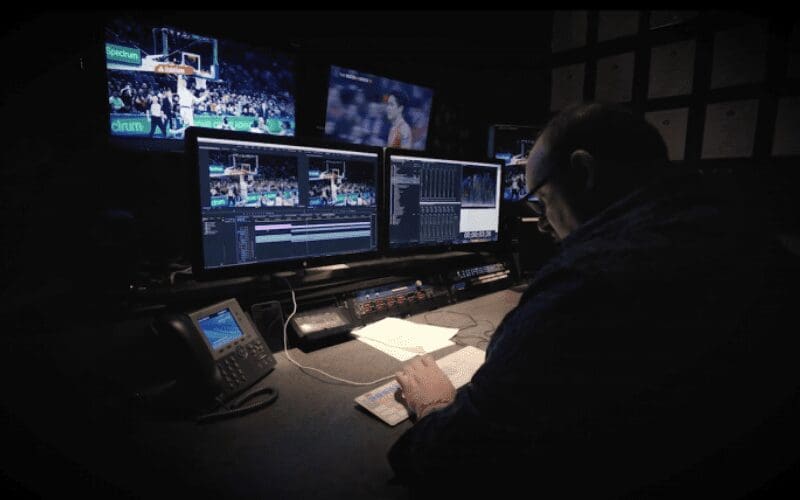
Now you know everything about becoming a film editor! We hope that this guide was helpful for you and has left you feeling inspired to chase your dreams of becoming a film editor. As we have discovered, there are two main ways of becoming a film editor.
You can gain relevant experience through an internship, or you can go down the education route. The route you go down will depend upon your personal preferences, although it’s important to note that a lot of film editor jobs will prefer you to hold a degree in a relevant subject.
We also recommend checking out some famous film editors, and researching how they got where they are today. This could give you some much-needed inspiration!
It’s also important to remember that your salary will vary. This is both depending on your level of experience, and if you’ve taken on a permanent job or you’re freelancing.
Additionally, we recommend that you work on honing your communication skills. After all, this is a job that will require you to work closely with the director and other departments (like music and sound).
You want to be able to get your ideas across effectively and be able to ask questions where you need more clarity from your director. So, what are you waiting for? Begin your new career as a film editor today!
Are you looking to become a film editor? Let us know in the comments below! If you enjoyed this article or know anyone who would find it useful, why not share on your social media? Be sure to tag us @musicgateway.
Would you like to read more interesting film-related content? If yes, then head to the Мusic Gateway blog! Here are our articles on What Is Film Editing, How To Write A Script, and How To Become A Movie Producer to get you started!
Are You A Filmmaker?
Need financial backing to support your project? Our film investment can back projects of all sizes from independent short films to major releases covering all corners of the globe. If that wasn’t enough, promote your work, list your upcoming films and allow fans to pre-order or buy them with your very own Showcase site. Finally, with our concierge and service and extensive music library, allow us to help you find music for your film. Check out our Music Licensing service for starters!


